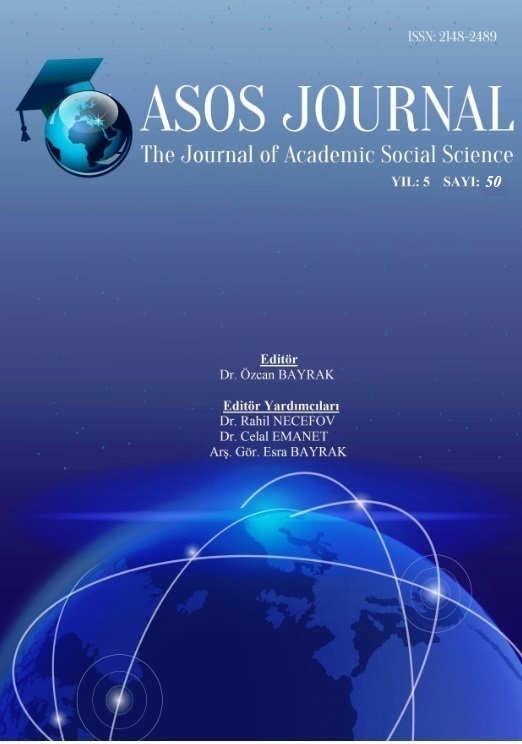İNGİLİZCEYİ YABANCI DİL OLARAK ÖĞRENEN TÜRK ÖĞRENCİLERİNİN İNGİLİZCE YETERLİLİĞİ VE CİNSİYETİNİN DİL ÖĞRENME STRATEJİLERİ KULLANIMINA ETKİSİ
Author :
Abstract
Dil öğrenme stratejileri, öğrencilerin dili daha etkin öğrenmesine, gelişmesine ve dildeki başarılarını artırmasına yardım ettiği için dil öğretiminde önemli bir rol oynar. Bu çalışmanın amacı İngilizceyi yabancı dil olarak öğrenenler tarafından sıklıkla kullanılan stratejiler ile bu stratejilerin cinsiyet ve dil başarı seviyesi değişkenleriyle ilişkisini belirlemektir. Araştırmanın çalışma grubu İngilizceyi yabancı dil olarak öğrenen 77 üniversite öğrencisinden oluşmuştur. Veri toplamak için Dil Öğrenme Stratejileri Ölçeği (Oxford, 1989) kullanılmış ve veriler SPSS 20.00 ile analiz edilmiştir. Çalışmanın sonuçları öğrencilerin telafi stratejilerini diğer stratejilerden daha sık kullandıklarını ve cinsiyetin strateji seçiminde etkili olmadığını göstermiştir. Diğer taraftan, istatiksel veri analizi öğrencilerin dil yeterliliği ile strateji kullanımı arasında yakın bir ilişki olduğunu ortaya çıkarmıştır.
Keywords
Abstract
Language learning strategies play a significant part in language teaching because they help students become more effective learners and foster their own success in language proficiency. This study was carried out to find out what strategies are commonly used by EFL students and the potential relationship between variables including gender, proficiency level and learning strategy use. The subjects were 77 EFL undergraduate students. The Strategy Inventory for Language Learning (SILL; Oxford, 1989) was employed to collect data and the data were analysed using statistical procedures through SPSS 20.00. The findings of the study showed that EFL students use compensation strategy more than other strategies and there is no significant difference between male and female students in using learning strategies. On the other hand, the statistical data analysis revealed a close link between perceived proficiency level and strategy use.





